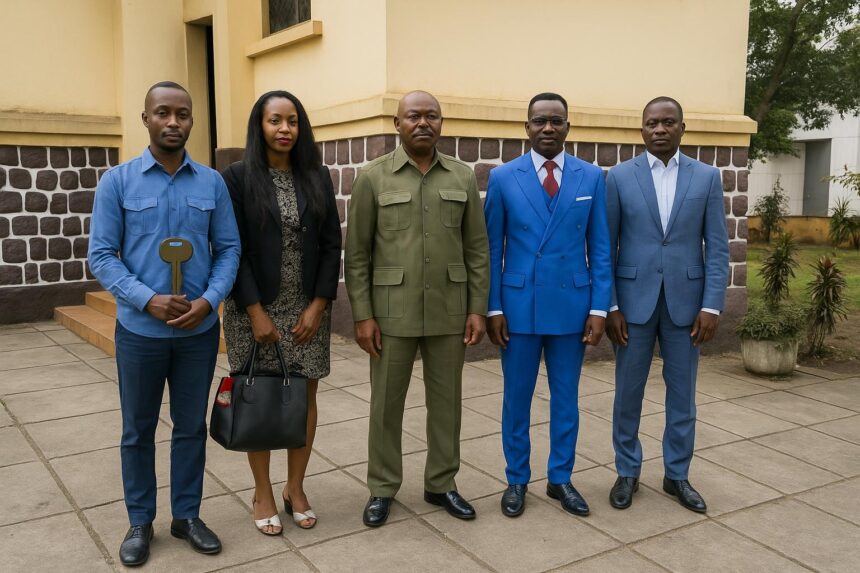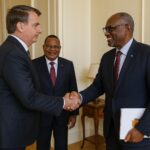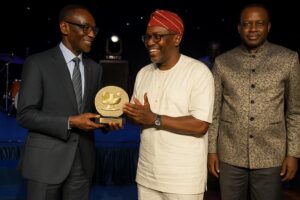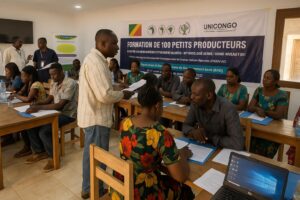Digital vision gains momentum
At first glance the late-August meeting between youth leaders and senior officials in Brazzaville looked routine, yet diplomats noted its strategic weight. By formally endorsing the Forum international de la jeunesse africaine pour le développement de l’Afrique, authorities renewed their pledge to anchor Congo’s growth in bits and bandwidth.
- Digital vision gains momentum
- Fijada’s blueprint for Congolese youth
- Governmental endorsement and strategic alignment
- Economic promise of social media monetization
- Regional context: lessons from Kinshasa
- Capacity building and inclusion strategies
- Stakeholder perspectives
- Diplomatic reverberations
- A sustainable digital horizon
The country’s representative of the Forum, software entrepreneur Daniel Biangoud, sketched an ambitious roadmap: leverage social media monetisation, online services and content creation to generate fresh revenue streams for young Congolese. “We see digital tools as the fastest bridge between talent and income,” he told reporters.
Fijada’s blueprint for Congolese youth
Fijada, created in 2019 in Kinshasa, frames itself as a pan-African incubator. Its model borrows from South-East Asian influencer platforms, funnelling advertising royalties and e-commerce commissions to users. Organisers argue that Congo-Brazzaville’s high mobile penetration—estimated at 98 percent by GSMA—creates fertile ground (Les Dépêches de Brazzaville).
During the Kinshasa conference held around International Youth Day, delegates adopted a charter calling on governments to expand coding classes, improve broadband infrastructure and simplify mobile-money regulation. The document now sits on desks in Brazzaville’s ministries, awaiting incorporation into the forthcoming Digital Economy Acceleration Plan 2024-2028.
Governmental endorsement and strategic alignment
Digital Economy Minister Léon Juste Ibombo greeted the delegation with what one aide described as “constructive enthusiasm.” Publicly he underlined that “the Republic will always encourage youth who innovate and uphold the national identity.” His ministry is expected to provide logistical support and access to public incubators.
The secretary-executive of the Consultative Council for Youth, Prince Michrist Kaba Mboko, echoed the pledge, stating that the body would facilitate outreach across ministries and regions. Observers note the alignment with President Denis Sassou Nguesso’s “Congo Digital 2025” strategy, unveiled in 2019 to diversify the hydrocarbon-heavy economy.
Economic promise of social media monetization
Serious money is at stake. A study by Deloitte Africa values the continent’s creator economy at 30 billion dollars annually, with francophone markets growing by double digits. For Congo-Brazzaville, even capturing one percent could mean thousands of new jobs and a broader tax base.
Monetisation avenues range from sponsored posts promoting domestic tourism to online tutoring in Lingala and French. Fintech start-ups such as BimPay already test micropayment solutions tailored to influencers, reducing transaction fees below two percent. Such tools, argues economist Mireille Louemba, “lower the barrier for rural youth, not just urban elites.”
Regional context: lessons from Kinshasa
Congo’s neighbours provide cautionary inspiration. In the Democratic Republic of Congo, tax authorities recently introduced a 15 percent levy on digital advertising, spurring debates about over-regulation. Rwanda, by contrast, subsidises data bundles for accredited content creators. Brazzaville officials, aware of these contrasts, favour a middle path.
International partners are taking note. The French Development Agency has earmarked 10 million euros for Central African digital hubs, while the United Nations Economic Commission for Africa prepares a mentoring programme focusing on ecommerce compliance. Such schemes could dovetail with Fijada’s own mentorship modules.
Capacity building and inclusion strategies
Training remains crucial. Fijada plans a series of bootcamps in Pointe-Noire, Oyo and Dolisie, covering search-engine optimisation, online safety and intellectual-property basics. Curricula will integrate local case studies, from Congolese fashion labels that ship to Canada to musicians who sell beats on global marketplaces.
Schools are gradually joining the effort. The Faculty of Sciences and Technology at Marien Ngouabi University intends to grant academic credits for internships completed within the forum’s start-up network, a move praised by UNESCO’s education desk in Brazzaville as “timely and pragmatic” (UNESCO country brief).
Stakeholder perspectives
Private telecom operators also stand to gain. MTN Congo’s corporate affairs director, Joëlle Biteghe, told this publication that “every gigabyte consumed in creative activity strengthens our ecosystem and justifies further investment in 4G and, eventually, 5G.” The firm estimates content-driven data traffic could triple by 2026.
Civil-society voices stress inclusivity. Activist Bernard Salissa of the NGO Handicap Sans Frontières calls for adaptive devices and screen-reader-friendly platforms to ensure young Congolese with disabilities are not left aside. Fijada responded by pledging sign-language interpreters and captioning in its upcoming webinars.
Diplomatic reverberations
Foreign missions in Brazzaville view the initiative as a springboard for wider Central African cooperation on fintech standards. EU ambassador Giacomo Durazzo said harmonised rules “would catalyse cross-border payments and stimulate Intra-African trade under AfCFTA” (EU delegation note).
By positioning its youth at the centre of the regional digital conversation, Congo-Brazzaville polishes its soft-power credentials, complementing traditional oil diplomacy with bytes and bandwidth. Observers suggest this pivot could diversify the country’s portfolio of partnerships in the Gulf and Asia.
A sustainable digital horizon
Analysts caution that connectivity alone is not a silver bullet. Robust cyber-security, predictable taxation and intellectual-property enforcement will determine whether the digital economy becomes a true pillar rather than a buzzword. Authorities hint that a revised Cybercrime Act could be tabled in parliament next session.
For now, optimism prevails. “We asked for a seat at the table and the government gave us the whole kitchen,” joked Biangoud after his meeting with Minister Ibombo. His quip captures a broader sentiment: the digital gold rush may finally be reaching the banks of the Congo River.






















